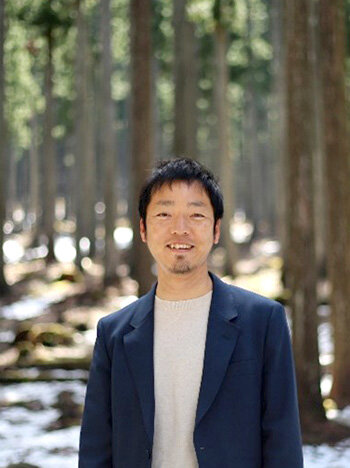Environmental Strategy Planning Group, Nippon Electrical Corporation (NEC)
2000 B.A., Division of Natural Sciences (then), College of Liberal Arts
Creating businesses that not only generate profit but also enrich nature. I want to continue to take on new challenges, drawing on the dialogue skills gained at ICU.
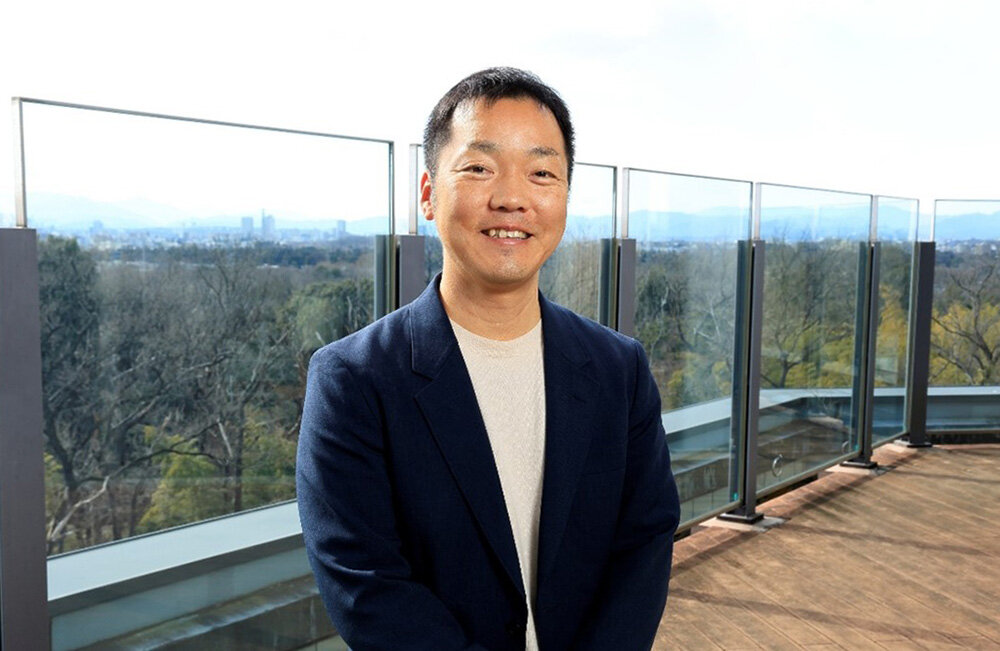
From "I can't speak English" to the world stage
I first became aware of environmental issues when I witnessed the nature I had taken for granted in Odawara, where I lived where I lived at the time, disappear due to residential land development. Although there were protest movements, many of the people raising their voices in fact had moved to the area about ten years earlier as part of that same development. That led me to wonder, "Improving people's lives is important, but so is protecting the environment. How can we find solutions that value both?" I wanted to explore this question in university, but at the time, there weren't many universities in Japan that offered dedicated programs in environmental studies. After consulting with one of my high school teachers, I was advised, "If you go to ICU, a liberal arts college, I'm sure you'll find the kind of learning you're looking for," which led me to enroll at ICU.
However, at the same time, I had deep anxieties about studying at ICU; The truth is that I had greatly struggled with English throughout junior high and high school. In fact, my English test scores were consistently well below average. To me, it seemed like most of my classmates at ICU could speak English effortlessly. Some even responded with native-like interjections such as "Aha," so when I first entered ICU, it was almost a culture shock. But I was able to overcome my fear of English and eventually reach the point where I could give talks on environmental issues at various international conferences such as the G7 and CBD-COP16. This was thanks to the English Language Program (ELP, now English for Liberal Arts/ELA), which thoroughly trained me in how to learn and think in English. During my first term, I couldn't speak at all; I could only listen to the discussions happening around me. But by being immersed in English, I gradually began to speak during the second term. The topics covered in class were wide-ranging, including environmental and social issues, and over time, I found myself enjoying the process of thinking and having discussions in English. When one of my instructors praised a paper I wrote by saying, "Outstanding!" it gave me a huge boost in confidence. I realized that English isn't about being good or bad at speaking, but rather about organizing your thoughts, building your logic, and communicating them effectively. The lessons I learned during that period continue to support me to this day.
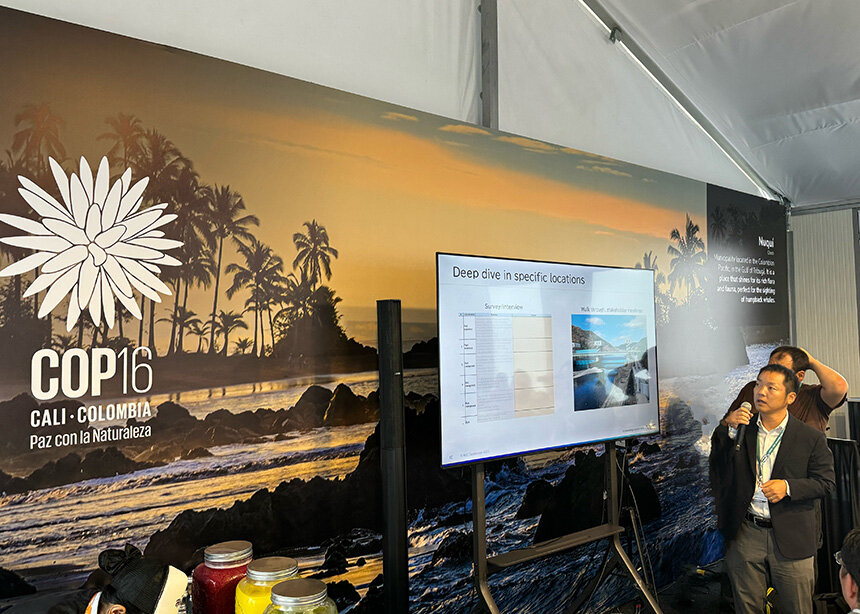
Giving a talk at the G7 meeting during COP16
The power of dialogue across differences can change the world
At ICU, I explored environmental issues through a wide range of fields, including media communication and public policy. After graduating, I pursued a master's degree at the University of California, which has a strong reputation for environmental research. I then worked at Toyota and Nippon Electric Company (NEC), engaging in projects that promote environmental conservation and building my career as an environmental assessment specialist. At NEC, my work includes promoting the use of renewable energy, protecting the water resources of river basins essential to data centers from a circular economy perspective, and helping various companies transform their operations into more sustainable models. I also attend a variety of international conferences where I speak on environmental measures and the creation of sustainable societies.
What I've come to realize through this work is that companies won't change just because the environmental department says, "We want to be more eco-friendly." For example, when you need the design department to consider material selection, or the logistics department to rethink transport methods, the design team prioritizes aesthetics and functionality, while logistics wants stable delivery without delays. To implement environmental initiatives, you have to deeply understand each group's perspectives. After all, everyone has different goals, backgrounds, and missions that they're dedicated to.
The dialogue skills I gained at ICU are what enable me to overcome the barriers of differing perspectives. Back then, I engaged in repeated discussions with other students from different countries and religious backgrounds whose fundamental ways of thinking differed from my own. Rather than seeing those differences as problems, I learned to infer what led the person to think that way and to move the conversation forward through understanding and empathy. I've come to believe that the ability to bring people together through dialogue while making progress is essential to effective environmental action.
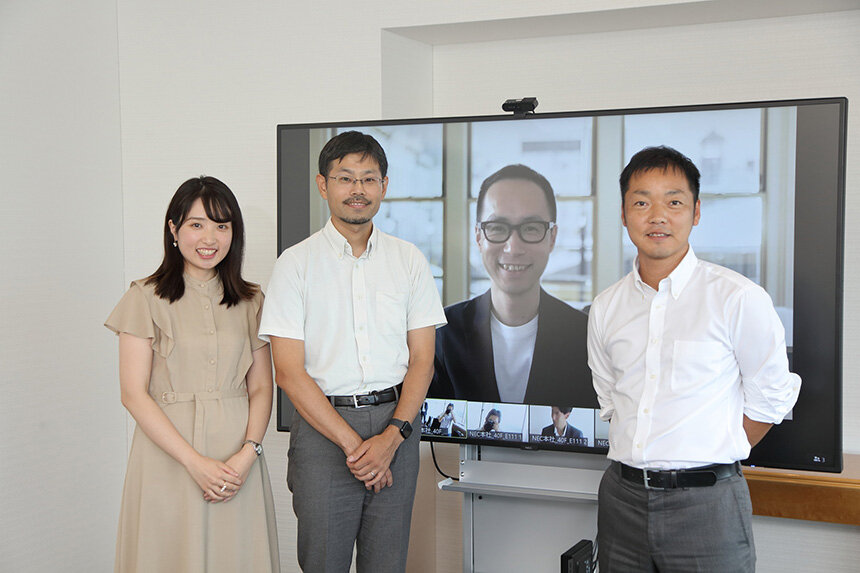
A volunteer team gathered to prepare the TNFD report
ICU offers a place where you can sharpen your thinking without fear of debate
Another essential factor for sustaining environmental action is economic viability. Whatever good action you make, it won't change the world if it can't sustain it. While working in environmental projects at NEC, I've also taken on a new challenge in Nishiawakura Village, Okayama Prefecture, where I relocated, exploring how to build and scale "environmental initiatives that are economically sustainable." There, together with like-minded colleagues, we launched a company called "A Zero," with a mission to create businesses where the more profit they generate, the richer the natural environment becomes, and the happier the people are. Collaborating with local companies, agricultural, forestry, and fishery sectors, and municipal governments, we aim to establish a flourishing society grounded in a healthy natural environment, and to co-create a "satoyama of the future," which is economically sustainable.
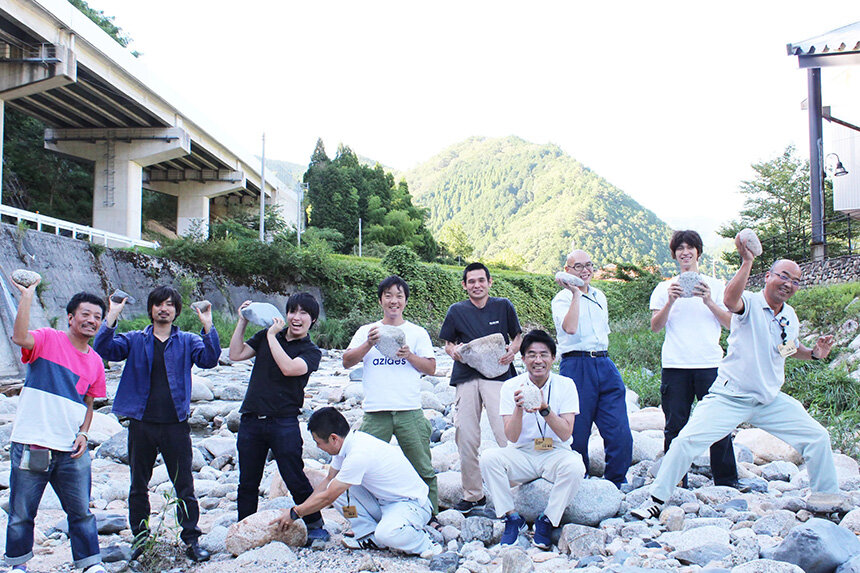
The key to advancing this co-creation are the dialogue skills and critical thinking I developed at ICU. Looking back, my time at ICU was filled with lively discussions, whether with professors or students. Even when discussions occasionally escalated into heated debates, ICU was an environment where everyone viewed them simply as differences in perspective, never something to feel awkward about. In fact, those discussions left me with a real sense of fulfillment, as they put my thinking against others', and sharpened and deepened it. I want those preparing to study at ICU not to hesitate to engage your professors. There will be times when you're thoroughly outmatched, but through repeating such experiences, you'll develop and refine your critical thinking skills. And best of all, you'll be doing it all in English! I encourage you to discover your own unique world and future through your journey at ICU.
Profile
Yutaka Okano
Environmental Strategy Planning Group, Nippon Electrical Corporation (NEC)
2000 B.A. in Arts and Sciences (Science)
After graduating from ICU, he earned a Master's degree in Ecology from the University of California, Davis. Upon returning to Japan, he joined Toyota Motor Corporation, where he spent 14 years in the environmental division. His work included decarbonization of factories worldwide, resource recycling, water quality conservation, biodiversity initiatives, and the formulation of global medium- to long-term environmental goals. Since 2017, he has served as an executive officer at a startup in Nishiawakura Village, Okayama Prefecture, where he launched the Natural Capital Division and developed a circular system for agriculture, forestry, and fisheries. He is currently at NEC, where he is responsible for formulating and driving environmental strategies, including efforts to reduce CO₂ emissions across the supply chain.
